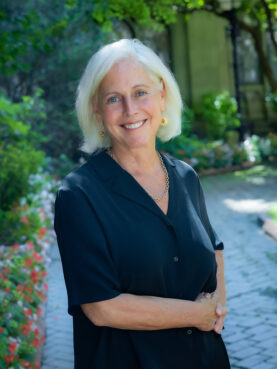(RNS) — On Thursday (Jan. 16), Union Theological Seminary will host a “Know Your Rights, Find Your Voice” interfaith event that will convene faith leaders, immigration advocates and legal experts. Organized in collaboration with Columbia University’s Office of Religious Life and New York’s Episcopal Diocese, the event aims to provide spiritual and legal resources for faith communities as they prepare for the incoming Trump administration’s promised immigration crackdown.
“There’s no greater issue at this moment in time that calls out for response from religious communities,” said the Rev. Serene Jones, Union Theological Seminary’s president, adding that it’s crucial for different faith communities to organize and rally together.
President-elect Donald Trump announced he would rescind a policy preventing ICE agents from arresting undocumented immigrants in sensitive places, undermining the sanctuary movement, a growing list of houses of worship that offer shelter to immigrants facing deportation. Trump also announced he will orchestrate the “largest deportation operation in American history.”
Since the immigration crisis peaked in 2022, more than 200,000 asylum-seekers have settled in New York, and the city’s religious organizations have been a source of critical support for them. Days before the Trump administration takes office, many fear his proposed policies will hinder that work, especially as New York City Mayor Eric Adams said he would work closely with Trump’s incoming “border czar,” Tom Homan, on immigration.

The Rev. Frederick Davie. (Photo courtesy of UTS)
In addition to Union Theological Seminary, Thursday’s event is co-sponsored by New York’s Interfaith Center, the Jewish Theological Seminary, and Riverside Church and will feature Imam Musa Kabba of the Bronx’s Masjid-ur-Rahmah mosque and New York’s Episcopal bishop, the Rt. Rev. Matthew Heyd. The day’s first panels will offer Abrahamic perspectives on the work done by faith organizations and will also be an occasion to reflect on these groups’ past achievements.
“We would not be faithful to our various faith traditions if we were not doing this. It would actually be an act of unfaithfulness to see this hugely vulnerable population beset by the state and authorities and to turn away from it,” said the Rev. Frederick Davie, vice president for public theology and civic engagement at Union Theological Seminary.
Adama Bah, who will participate in this discussion, said it was crucial to protect faith-based organizations’ unique status as shelters for migrants. Houses of worship inspire trust and are often the first stop for migrants arriving in the city, she explained. Bah runs Afrikana, an organization that provides legal help, shelter and benefit assistance to Black, Arab and Muslim migrants in Harlem and the Bronx.
Many Black and African migrants come to her organization knowing they will be able to connect with members of their community and speak their languages.
